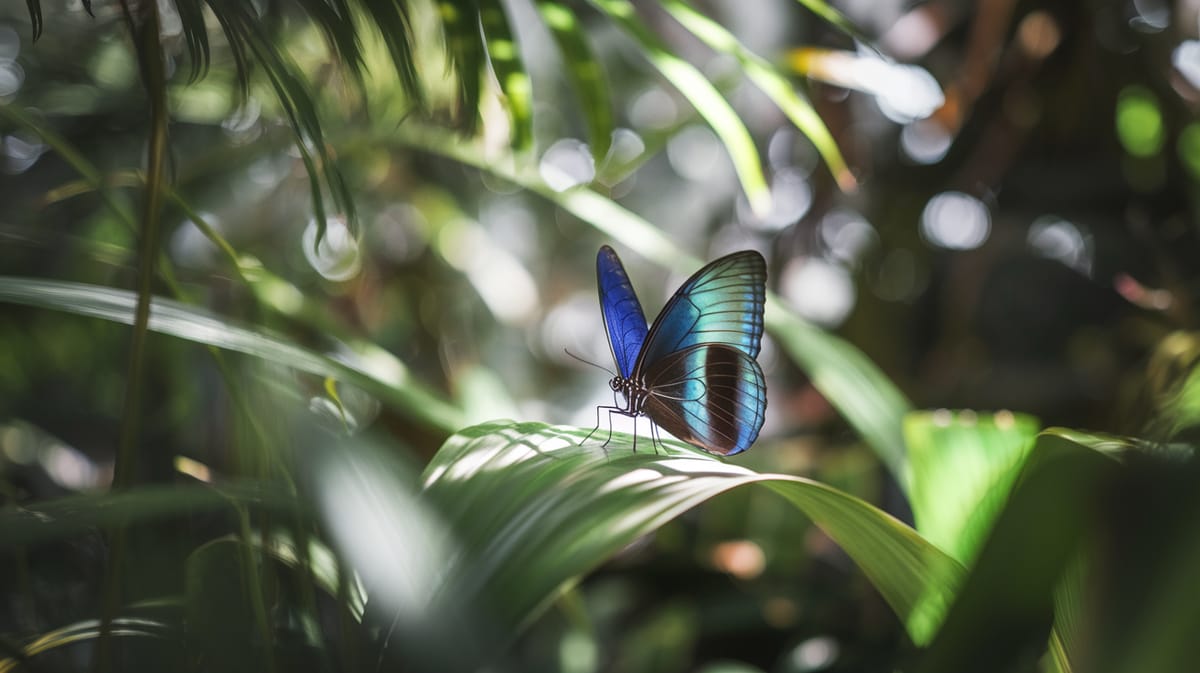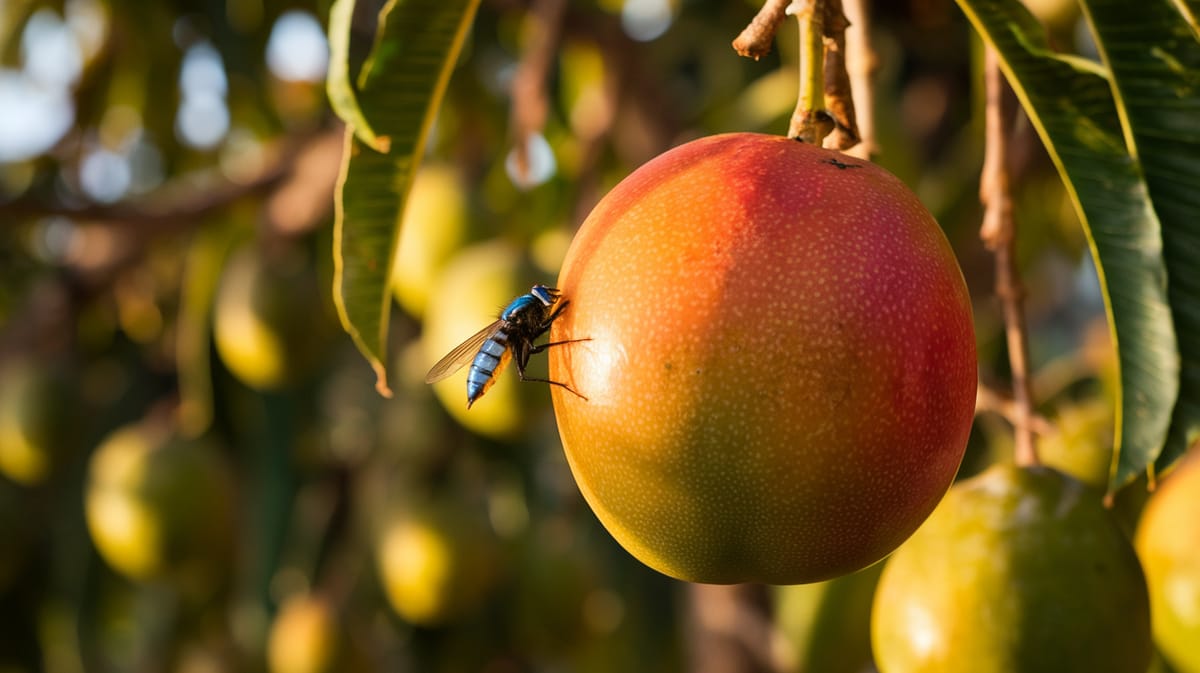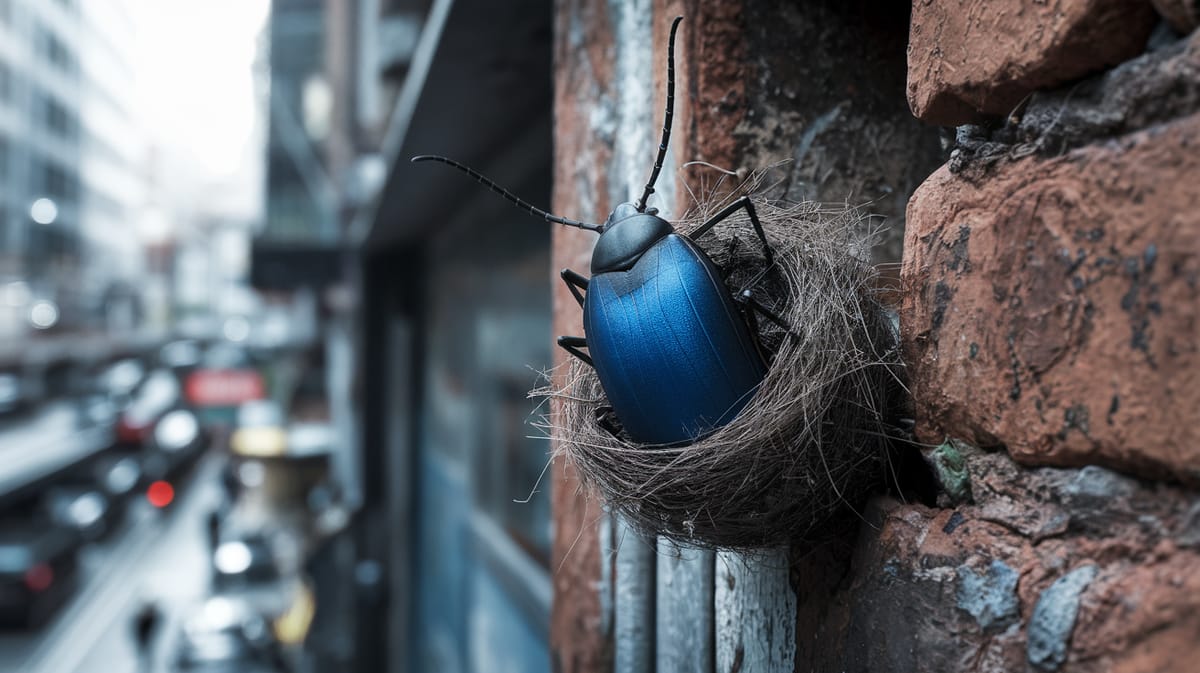Bluebottle
Buzzing with iridescent blue hues, the Bluebottle fly plays a vital role in decomposing organic matter and pollination. Its keen sense of smell aids in locating food sources.

Key Insights at a Glance
Did You Know?
Taxonomy & Classification
Bluebottles, known for their metallic blue sheen, play a key role in decomposition and forensic science due to their rapid reproduction and life cycle patterns. Let's understand the evolutionary journey and classification of these remarkable decomposers.
Global Presence
Bluebottles, part of the Calliphora genus, thrive across all continents except Antarctica, highlighting their adaptability and ecological significance.
Evolutionary Resilience
Emerging around 65 million years ago, bluebottles have adapted through extensive climatic changes, ensuring their survival and evolutionary success.
Lifecycle and Growth
A remarkable journey of transformation from Egg to Adult.
Egg
Laid in clusters, the eggs hatch rapidly, marking the start of the life cycle in favorable conditions.
Larva
The bluebottle larvae, known as maggots, feed voraciously on decaying matter, growing rapidly through successive molts.
Pupa
Within the protective puparium, the larvae undergo metamorphosis, transforming into fully developed adults.
Adult
Adults are active flyers seeking food and mates, contributing to pollination and decomposition processes.
Dietary Habits
A scavenger with distinct feeding tactics, this insect thrives on decaying organic matter and occasionally preys on other insects.
| DIET TYPE | DESCRIPTION |
|---|---|
| Primary Diet | Primarily feeds on decaying carcasses, rotting meat, and other decomposing organic material, playing a vital role in decomposition. |
| Secondary Diet | Also consumes plant nectar and sugary substances, supplementing its diet with available sweet resources. |
| Occasional | Occasionally feeds on other insects, especially larvae, demonstrating opportunistic feeding behavior in certain environments. |

Behaviour and Adaptations
Discover the fascinating traits that equip the Bluebottle for survival and success in its environment.
Rapid Egg Laying
Females lay hundreds of eggs in a short time to ensure survival.
Keen Olfactory Sense
Detects decaying matter from great distances, finding food sources efficiently.
Vibrant Coloration
Iridescent body serves both as a warning and a mating signal.
Ecosystem Impact
Key roles that Bluebottles play in sustaining ecosystems.
Decomposer Duties
Breaks down organic matter, recycling nutrients back into the soil.
Pollination Partner
Aids in pollinating flowers during nectar foraging, supporting plant reproduction.
Food Web Component
Serves as a food source for birds and other predators, maintaining biodiversity.
Conservation Challenges
Addressing the major threats to Bluebottle insect populations.
Habitat Loss
Urban development and deforestation reduce natural habitats for Bluebottles.
Pesticide Use
Chemical pesticides harm Bluebottle populations, affecting reproduction and survival.
Climate Change
Altered weather patterns impact Bluebottle life cycles and food sources.
Frequently Asked Questions
How long do Bluebottle live?
Bluebottle flies, also known as blowflies, typically live for about 2 to 3 weeks. Their lifespan can vary based on environmental conditions, such as temperature and food availability. They go through life stages including egg, larva, pupa, and adult.
What do Bluebottle eat?
Bluebottle flies primarily feed on decaying organic matter. This includes dead animals and other decomposing materials. Adults are also attracted to sugary substances and may feed on nectar or food waste. Their larvae, or maggots, consume decaying flesh or organic matter.
Are Bluebottle poisonous?
Bluebottle flies themselves are not poisonous. However, they can transmit bacteria and pathogens due to their feeding habits. They can contaminate food and surfaces, posing potential health risks to humans if proper hygiene is not maintained.
Are Bluebottle endangered?
Bluebottle flies are not considered endangered. They are common and widespread across many regions. Their adaptability to various environments and abundance of food sources contribute to their stable population numbers.
What do Bluebottle symbolize?
Bluebottle flies often symbolize transformation, change, or renewal due to their life cycle stages. They can also represent decay or nuisance because of their association with decomposition and their presence around waste or dead matter.
Do Bluebottle bite?
Bluebottle flies do not bite. They lack the mouthparts necessary for biting. Instead, they have sponging mouthparts used to lap up liquid substances. Their primary risk to humans comes from their potential to spread bacteria.
What color are Bluebottle?
Bluebottle flies are metallic blue or green, with a shiny, iridescent appearance. Their vibrant coloration makes them easily recognizable. The name "bluebottle" often refers to the blue hue found on these flies, distinguishing them from other fly species.
Does a Bluebottle have wings?
Yes, Bluebottle flies have wings. They possess two large, transparent wings that enable them to fly. Their wings are crucial for their mobility, allowing them to travel quickly between food sources and breeding sites.
What does a Bluebottle look like?
Bluebottle flies are medium-sized with metallic blue or green bodies. They have large red compound eyes and transparent wings. Their bodies are covered in fine hairs, contributing to their characteristic glossy appearance. These features make them distinct among other fly species.
Is a Bluebottle an insect?
Yes, a Bluebottle is an insect. It belongs to the order Diptera, commonly known as true flies. Like other insects, Bluebottle flies have three main body parts: the head, thorax, and abdomen, along with six legs and a pair of wings.
Related Insects
Discover insects with similar characteristics to Bluebottle - including shared habitats, diets, and taxonomic classifications
Share this profile
Help others discover Bluebottle
